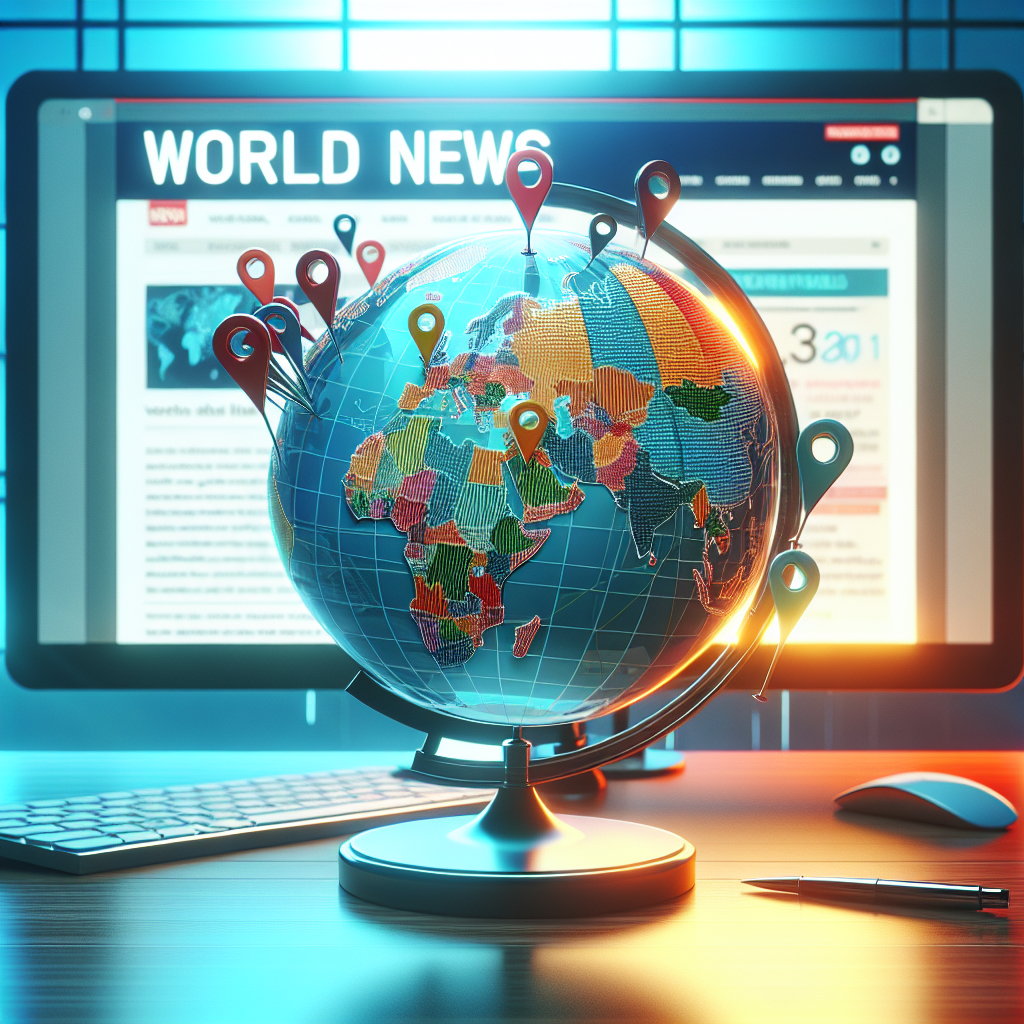The Ever-Evolving Landscape of Global Politics
The political landscape is ever-evolving, characterized by shifting alliances, emerging leaders, and unpredictable events. In recent months, significant political developments have captivated global audiences, reshaping the narratives and policies of many nations. This article delves into some of the most impactful political news stories that have emerged, analyzing their implications and future trajectories.
United States: A Year into Biden’s Presidency
As President Joe Biden marks over a year in office, his administration’s agenda has seen both progress and pushbacks. One of the most notable accomplishments has been the passage of the bipartisan infrastructure bill, which earmarks significant funding for modernizing America’s transportation, water systems, and broadband infrastructure. The Biden administration has touted this as a major victory, projecting it as a catalyst for job creation and long-term economic growth.
However, challenges persist. The administration faces ongoing struggles with the COVID-19 pandemic, including vaccine hesitancy and the emergence of new variants. Additionally, the contentious negotiations over the Build Back Better Act have highlighted deep divisions within the Democratic Party, further complicating Biden’s legislative agenda. With midterm elections on the horizon, the administration’s ability to maintain a unified front and deliver on campaign promises will be critical.
China: Xi Jinping’s Consolidation of Power
In China, President Xi Jinping continues to consolidate power as he leads the country into a new era of assertive international diplomacy and rigorous domestic control. At the recent Sixth Plenary Session of the 19th Central Committee, Xi was celebrated for his leadership, further entrenching his influence within the Communist Party.
Internationally, China’s assertiveness in the South China Sea and its diplomatic ventures through the Belt and Road Initiative continue to draw global attention. Domestically, Beijing’s crackdown on tech giants and enforcement of strict COVID-19 lockdowns reflect Xi’s broader strategy of centralized control. As China prepares for the 20th National Congress of the Communist Party in 2022, Xi’s vision for the country’s future will undoubtedly shape global dynamics.
Europe: The Rise of New Leaders
Europe has witnessed significant political changes, with new leadership in several major countries. In Germany, Olaf Scholz succeeded Angela Merkel as Chancellor, ending her 16-year tenure. Scholz, leading a coalition government, faces the challenge of managing Germany’s economic recovery post-pandemic while navigating complex EU relations and energy dependencies.
France is also on the cusp of potential change, with President Emmanuel Macron gearing up for a competitive re-election campaign. Macron’s handling of the pandemic, as well as his domestic reform agenda, will be central themes as France approaches its 2022 presidential elections. Meanwhile, the United Kingdom continues grappling with the post-Brexit fallout, with Prime Minister Boris Johnson facing criticism over his handling of the pandemic and domestic issues.
Middle East: Turbulence and Transformation
The Middle East remains a region of significant geopolitical turbulence. In Afghanistan, the Taliban’s return to power has plunged the country into an economic and humanitarian crisis, raising concerns over regional stability and human rights, especially for women and minorities. International responses have varied, with aid organizations calling for increased support while governments weigh diplomatic recognition.
In Iran, nuclear negotiations with global powers have resumed, aiming to revive the 2015 Joint Comprehensive Plan of Action (JCPOA). The outcome of these talks holds substantial implications for regional security, especially concerning Israel, Saudi Arabia, and the broader international community’s approach to nuclear proliferation.
Latin America: A Wave of Change
Latin America is experiencing a wave of political change as several nations undergo elections and shifts in leadership. In Chile, Gabriel Boric, a former student leader, was elected president, reflecting a broader leftward shift in the region’s politics. Boric promises to address inequality and social justice issues, signaling a potential departure from neoliberal economic policies.
Brazil is also gearing up for major political changes with its upcoming 2022 presidential election. Current President Jair Bolsonaro faces declining approval ratings amid widespread criticism of his handling of the COVID-19 pandemic and environmental policies. Former President Luiz Inácio Lula da Silva is expected to be a major contender, promising a politically charged contest.
Conclusion
The global political environment remains dynamic, with each region experiencing its own unique set of challenges and transformations. From legislative struggles in the United States and power consolidation in China, to new leadership in Europe and unfolding dramas in the Middle East and Latin America, the political news of today will undoubtedly shape the world of tomorrow. As citizens, policymakers, and global observers continue to navigate this complex landscape, the importance of informed engagement and adaptive strategies cannot be overstated.














Leave feedback about this
You must be logged in to post a comment.